Reviewed by Jeffrey Sanzel
“Sometimes I wonder. Is it even real?” This notion heralds an interesting premise, but the idea fails to manifest in Amazon Prime’s limp psychological thriller Holland.
Holland, Michigan, is a midwestern idyll—a Dutch Stepford, complete with tulips and windmills. Rooted in Americana values, one expects the town to be composed of theme park facades.
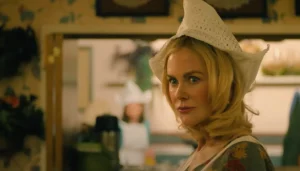
Photo courtesy of Amazon Prime
Life Management (Home Economics) teacher Nancy Vandergroot (Nicole Kidman) lives a seemingly picture-perfect existence with her devoted optometrist husband, Fred (Matthew Macfadyen), and a well-behaved thirteen-year-old son, Harry (Jude Hill). Her world is a softly padded suburban prison, with a church deacon husband who is a community pillar. When asked if she did something different with the dinner recipe, she replies: “Brown mustard instead of yellow. I felt like doing something crazy.”
Nancy’s hunt for a missing earring reveals a stash of Polaroid film and a suspicious parking ticket. The discoveries suggest Fred is having an affair. Admitting that she likes to “play detective,” Nancy enlists the attentive shop teacher, Dave Delgado (Gael Garcia Bernal), to help uncover Fred’s double life.
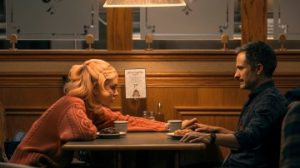
“He goes to a lot of conferences for an optometrist,” she shares. The pair embark on a search for answers. “Sometimes in life, you know, you’ve got to follow the clues wherever they take you.” About one hundred minutes in, the story turns dark. A climactic confrontation leads to a complication and a less-than-satisfactory second climax/conclusion.
With the right treatment, the predictable setup can make for an engaging story. Alfred Hitchcock often elevated modest plots with unusual twists, interesting points of view, and an ability to elicit fully realized characters. Hitchcock knew film was less the telling of the story but how the story is told. Unfortunately, Andrew Sodroski’s cluttered screenplay and Mimi Cave’s jumbled direction fail to commit to a tone or style.
Mixing horror tropes (including nightmare visions), caper standards (almost being caught while searching for evidence), and off-beat humor (a kiss interrupted by a car hitting another car), the genres are not blended but rather randomly stacked.
Much of the dialogue feels like it is being delivered in quotation marks and italics as if everything is simultaneously important but not what it seems. “We have to stay through Tulip Time.” Is this meant to be humorous? Foreboding? Quirky? Ultimately, the statement feels awkward, as does most of the film.
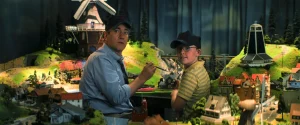
The most effective piece is the model train hobby shared by father and son in the orderly garage: “You get to make a story about someone you’ve never met before and direct their whole lives … you get to control everything.” The toy railway’s real purpose is much deeper and the film’s most chilling element.
Kidman is a gifted actor. With Nancy, she channels some of the more benign shades of To Die For’s Suzanne Stone. Nancy is naïve, frayed, and sometimes a little loopy. Kidman manages to carve some dimension in the homemaker’s struggle, finding balance and understanding in the gathering darkness of Nancy’s crumbling reality. The fact that her internal imbalance is not fleshed out (or resolved) lies squarely with Sodroski and Cave.
Macfadyen (so strong as Mr. Darcy in the 2005 Pride and Prejudice) makes Fred charming, easy, and plausible, veering away from the ominous. Bernal is slightly over-earnest as a man of great conscience who is clearly in love with Nancy. Some racial issues imposed on the narrative ultimately go nowhere, but Bernal uses those to give his character a sense of other in an almost solely white community. Hill makes Harry believable—both likable and subtle.
Holland attempts to cover self-knowledge, infidelity, guilt, racism, psychological abuse, societal expectations, and a host of other concepts. By trying to say and do so many things, the film fails to unify as one. In the end, Holland is a simplistic suspenser mired in assorted clichés.
Rated R, the film is now streaming on Amazon Prime.

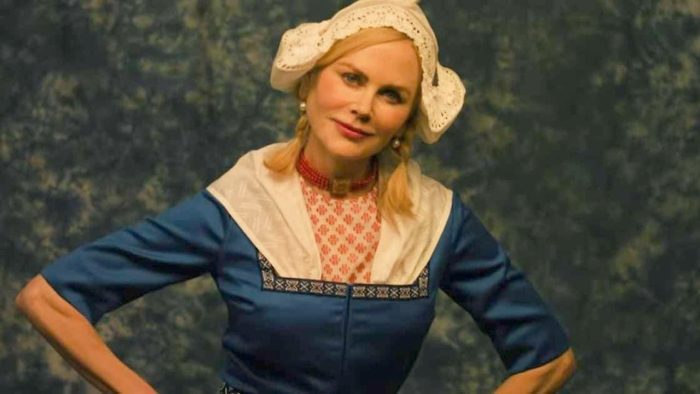
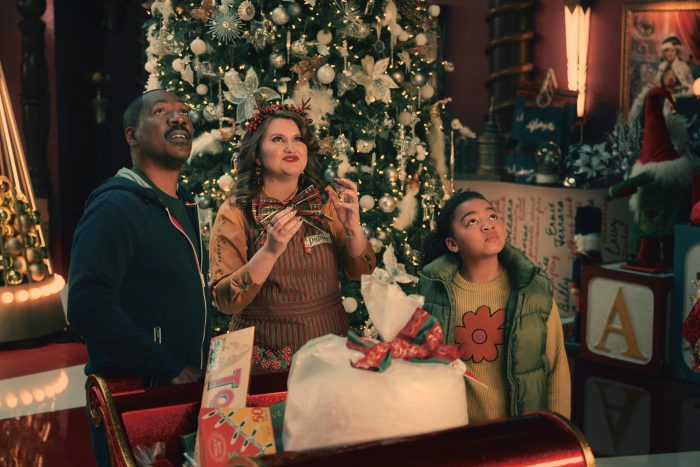

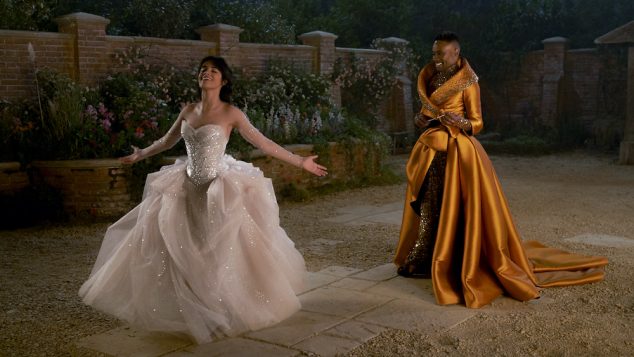
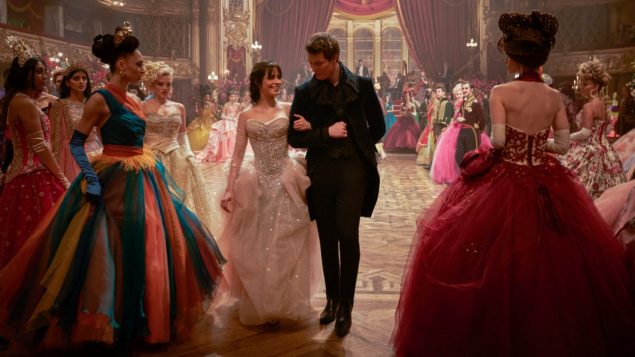

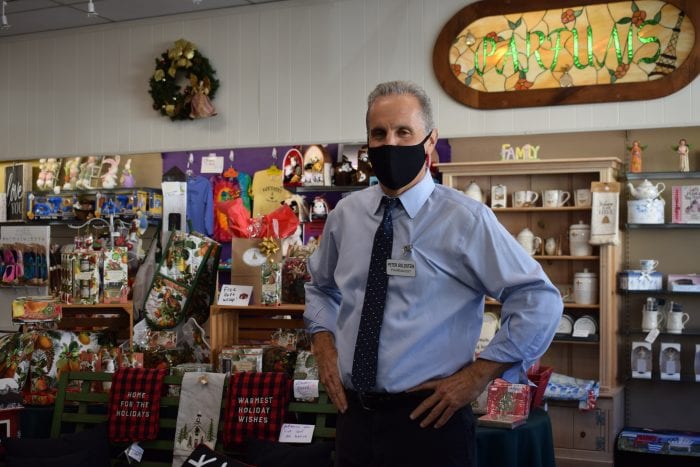



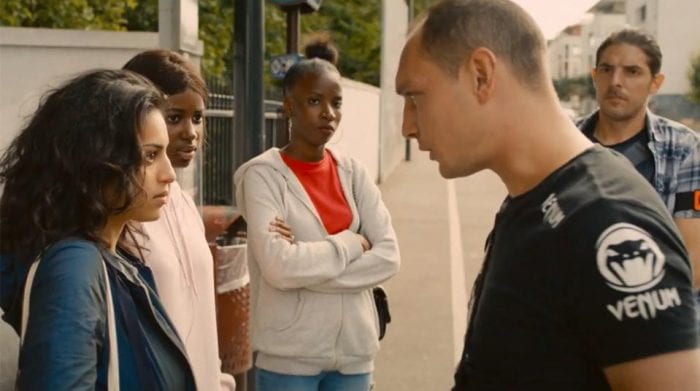
 Quickly, the action shifts to Les Bosquets, Montfermeil’s most notorious and crime-ridden social estate. Police officer Stéphane Ruiz, an emotional and moral core as played in a brooding, heartfelt performance by Damien Bonnard, has arrived for his first day, having been transferred from Paris, to join the anti-crime brigade. He is placed with the high-strung, abusive, and sadistic Chris (Alexis Manenti, dangerously mercurial) and the more laid-back Gwada (understated but wholly engaging Djebril Zonga), who grew up in the neighborhood.
Quickly, the action shifts to Les Bosquets, Montfermeil’s most notorious and crime-ridden social estate. Police officer Stéphane Ruiz, an emotional and moral core as played in a brooding, heartfelt performance by Damien Bonnard, has arrived for his first day, having been transferred from Paris, to join the anti-crime brigade. He is placed with the high-strung, abusive, and sadistic Chris (Alexis Manenti, dangerously mercurial) and the more laid-back Gwada (understated but wholly engaging Djebril Zonga), who grew up in the neighborhood. Even after they locate Issa, it is an act of violence — revealed to be not as accidental as it first seems — that drives the latter part of the film. From then on, it is a race between the police officers and the various residents to track down the video from Buzz (wide-eyed and fearful Al-Hassan Ly), the boy whose drone recorded the incident. It all builds to a showdown that is both a literal and figurative conflagration.
Even after they locate Issa, it is an act of violence — revealed to be not as accidental as it first seems — that drives the latter part of the film. From then on, it is a race between the police officers and the various residents to track down the video from Buzz (wide-eyed and fearful Al-Hassan Ly), the boy whose drone recorded the incident. It all builds to a showdown that is both a literal and figurative conflagration.


